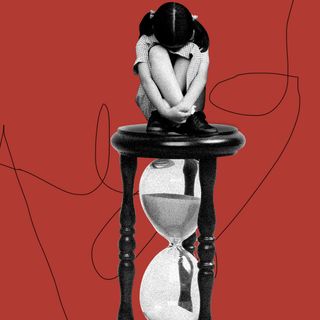A new Canadian health guideline is seeking to dismantle the societal stigma attached to obesity, which is often directed at patients approaching medical professionals for health-related issues. Obesity needs to be evaluated on the basis of a person’s health, not their weight or size, the guideline says, urging doctors to actually reckon with a patient’s underlying health conditions and not slap on the standard diet and exercise routine often paraded around as ‘treatment.’
“The dominant cultural narrative regarding obesity fuels assumptions about personal irresponsibility and lack of willpower and casts blame and shame upon people living with obesity,” the guidelines states, instead urging healthcare providers to focus on the why of weight gain instead of shaming people into getting thinner.
The guideline also seeks to change the definition of obesity, from a BMI-focused measure to “a prevalent, complex, progressive, and relapsing chronic disease, characterized by abnormal or excessive body fat that impairs health.” The change is subtle, but it marks recent conversations around body fat that seek to detach from how we’ve understood obesity and the health problems it can cause. BMI, or body mass index, determines a person’s height to weight ratio, or how much a person of a certain height needs to weigh to be in the ‘healthy weight’ category, but it cannot separate the fat from the muscle and bone. BMI also completely ignores people’s age, bone structure, and fat distribution in their bodies. So, a person’s health could fluctuate with changes in their body fat and muscle mass, but if their height and weight remain the same, their BMI would too, which would give anyone evaluating the person’s health an incorrect, incomplete picture.
Related on The Swaddle:
All The Arguments You Need: to Convince People Being Fat Isn’t Necessarily Unhealthy
For now, BMI still remains the most accurate and standardized measure to determine a person’s health, and in turn, determine if they’re obese. But this measure particularly hurts fat people, as it’s often used by medical professionals to get away with not enquiring further about a patient’s health. Most consultations presume high BMI equals obesity, which requires an exercise and diet regimen, further adding to the stigma of bigger bodies.
Research shows doctors spend less time with fat patients than those who are not, and refer them to fewer diagnostic tests. They also are quick to offer up a weight loss regimen as treatment, often without reckoning with health conditions the patient might have, such as Polycystic Ovary Syndrome. So, while exercise and a balanced, nutritious diet can help almost anyone looking to lead a healthier lifestyle, it cannot be a treatment plan peddled on its own to help people who are fat.
This idea gets further complicated with the cultural conversations we have around fat people and beauty, in which the pendulum constantly fluctuates between body positivity advocates trying to situate fat people as beautiful and the movement’s critics who say the glorification of fat bodies lets people get away with making poor decisions about their health. But we need to move this conversation away from how someone looks, their weight and their size, because these are not determinants of health. And having fat doesn’t necessarily make people unhealthy.
Is obesity a chronic disease that leads to heart disease, diabetes, high blood pressure, and stroke? Yes. Do we have proper diagnostic tools for and a deep understanding of obesity to actually counter this problem? No. If we’re centering people’s health, then we have all the more reason to stop stigmatizing obesity, understand it better, and dig deep into individuals’ personal health goals and work with them to achieve those. And it won’t always mean cutting calories.




